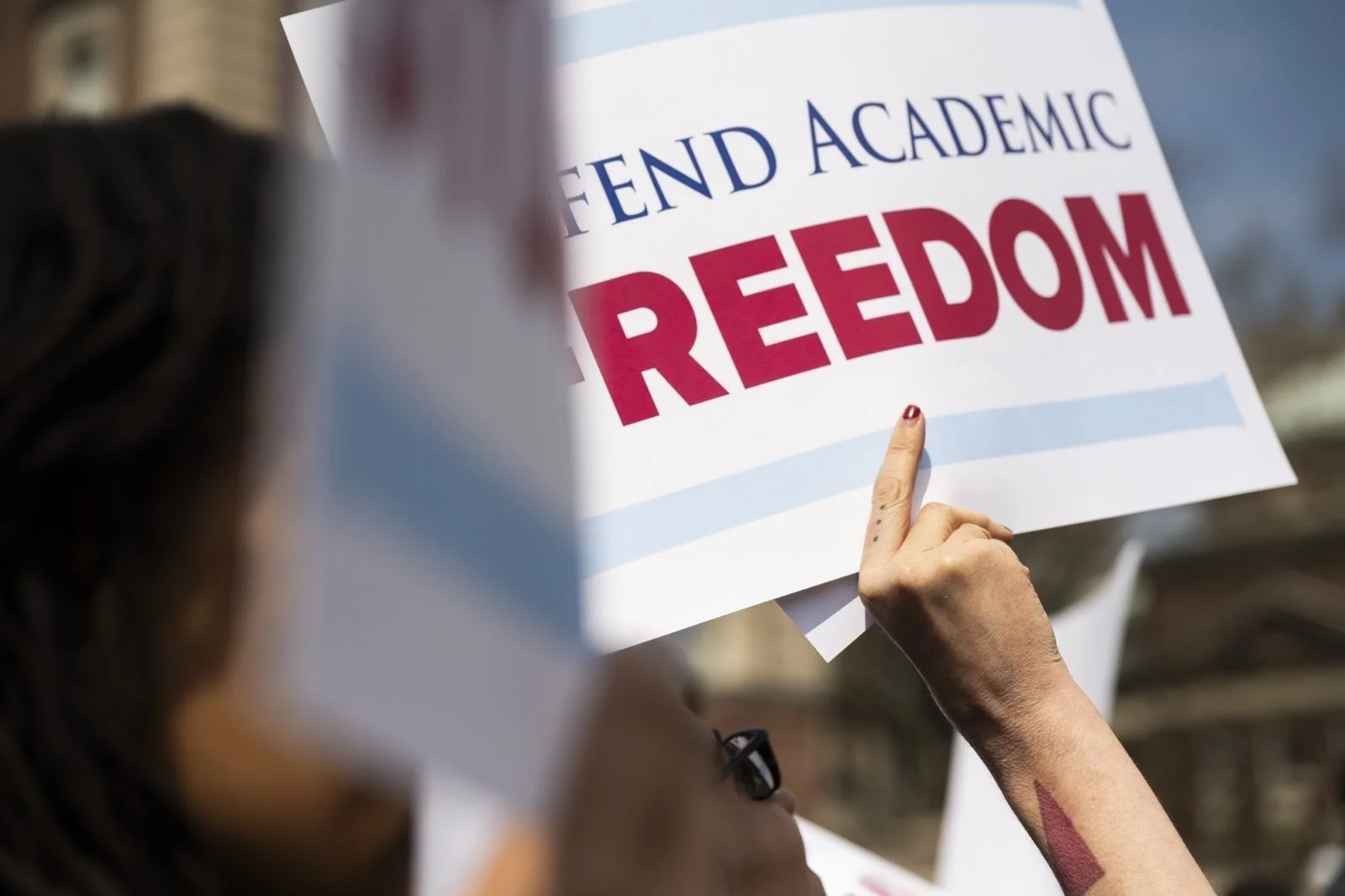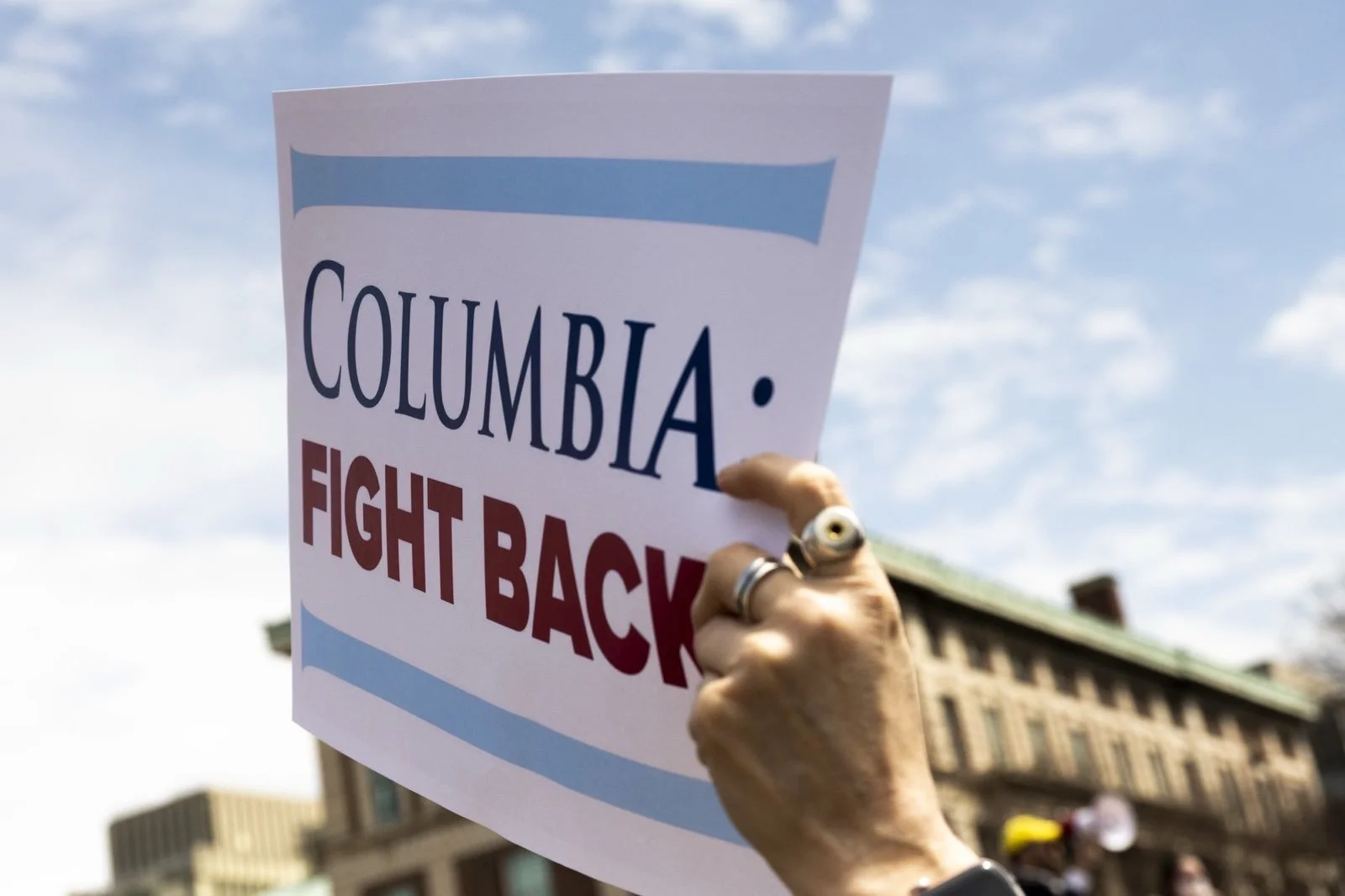





The following was sent to the Board of Trustees and Acting President Shipman on Sept 27, 2025….
On behalf of a grassroots organization of people who work at Columbia…
Columbia is now operating under a federal agreement that places new oversight on our funding, programs, hiring, and public commitments. We recognize the challenges this creates for the University’s leadership. Yet these pressures make it all the more important to reaffirm Columbia’s core mission and values. Compliance must not come at the expense of academic freedom, free expression, or community safety. As Columbia faculty, staff, researchers, and teachers, we call on our leaders to defend our University, our values, and our community in the ways below.
-
By taking these steps, Columbia’s leadership can safeguard the University’s integrity, protect its people, and reaffirm its role as a global leader in higher education.
Reputation: Columbia’s prestige depends on free inquiry, protected dissent, and scholarship insulated from political interference.
Community trust: Students, faculty, and staff thrive only when safe from repression, surveillance, and censorship.
Leadership: As a premier research university, Columbia must set the standard for defending higher education and democratic governance.
Sustainability: Without bold action now, the University risks eroding academic excellence, losing talent, and diminishing the confidence of alumni and the public in this remarkable institution.
-
Protect academic freedom, institutional integrity, and independent research.
Form a Mutual Academic Defense Compact with other AAU universities.
Democratize Board governance: fill the two vacant faculty Senate seats; include faculty, students, staff, and alumni as elected trustees; partner with the University Senate; and establish clear mechanisms for removal of trustees who engage in misconduct.
Restore Senate authority over disciplinary processes, including a University Judicial Board with student members.
Recommit to shared governance: route all rule changes through the Senate Rules Committee and the full Senate; revisit unilateral changes made March–September 2025.
Ensure financial transparency by directing budget committees to share information.
-
Affirm Columbia’s independence in academic and disciplinary decisions.
Protect free expression on campus and in scholarship; recommit to the principle that open debate is essential to sound scholarship.
Reform speech policy referencing the IHRA:
Remove the IHRA definitions from University policy and disciplinary practice.
Prohibit reliance on IHRA “examples” to sanction criticism of Israel or Zionism.
Replace IHRA definitions via a Senate-led, representative process that recommends academically grounded, speech-protective guidance opposing antisemitism and safeguarding academic freedom.
Honor the President’s Advisory Committee on Institutional Voice: when core values are threatened, leaders should speak in the University’s name. As the report notes, “remaining silent on a matter of grave social importance would seem untenable.”
Develop institutional-voice policies through shared governance with the University Senate, not by administrative committees alone.
Protect the right of departments, faculty, and student groups to organize and speak publicly without fear of sanction.
-
Join legal challenges to federal rights violations, including ICE detainment of students and scholars.
Issue formal statements and letters of support for Columbia community members targeted for deportation or visa cancellation (e.g., Mohsen Mahdawi, Mahmoud Khalil, Yunseo Chung), and engage institutional advocacy with counsel and elected officials.
Provide robust legal aid and defend the rights of international students and scholars.
Require the Office of Institutional Equity to publish monthly downloadable Title VI reports detailing complaint type, location, process, and disposition.
-
Replace lost federal funding for DEI-related grants, including research on health disparities and language studies.
Guarantee backup funding for terminated federal grants.
Defend science against political attack—especially research addressing inequalities.
Institute independent oversight of campus policing and publish case-level data on public safety complaints and activities (comparable to NYPD “stop-and-frisk” data).
Reopen Columbia’s gates and recommit to partnership with surrounding communities.
-
Acknowledge that Columbia’s extensive surveillance network has been used to suppress protest, particularly against the war in Gaza.
Publish a full accounting and description of security and surveillance contracts and practices (e.g, use of facial or gait recognition).
Provide transparency on:
retention practices for camera, ID swipe, and Canvas data;
conditions for data sharing (NYPD, OIE, HR, administration);
whether and how individuals are notified if their data are used.
Constitute any surveillance-related task forces through the University Senate, with voting roles for faculty, students, and staff.
-
Use every legal, political, and institutional avenue to defend our community and resources.
Affirm that federal oversight does not suspend our rights or relieve Columbia of its obligations to safeguard academic freedom, free expression, and community well-being.
